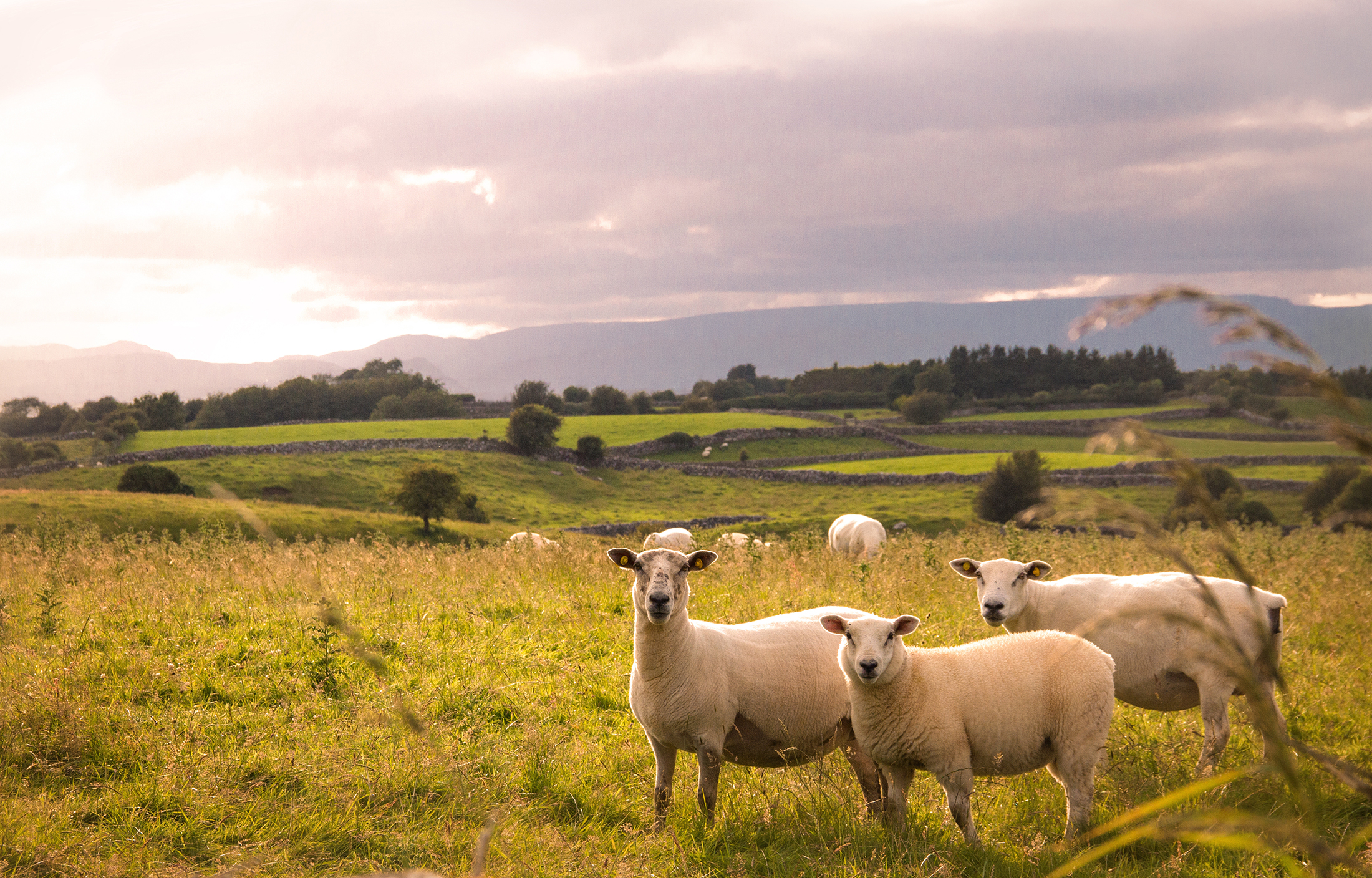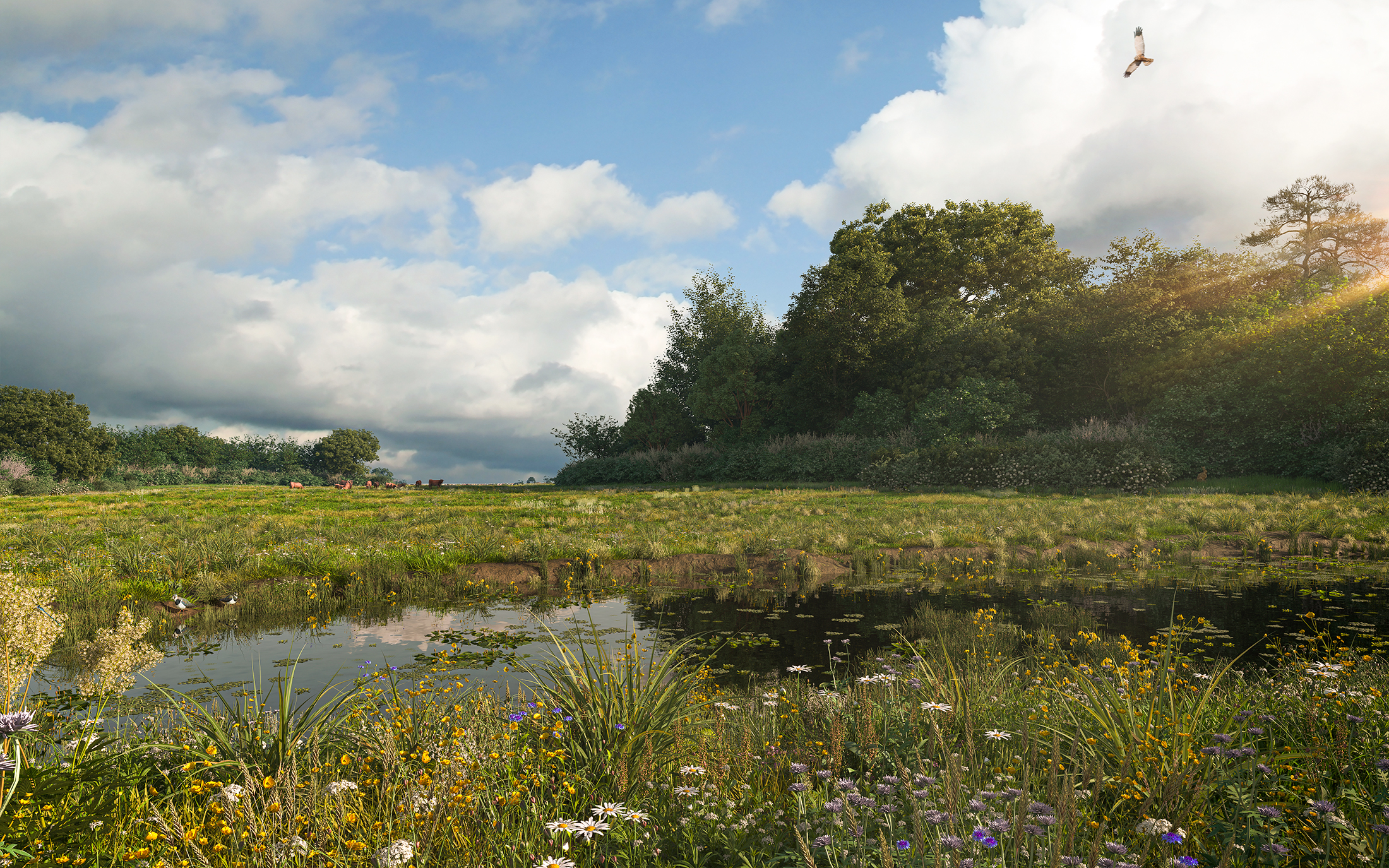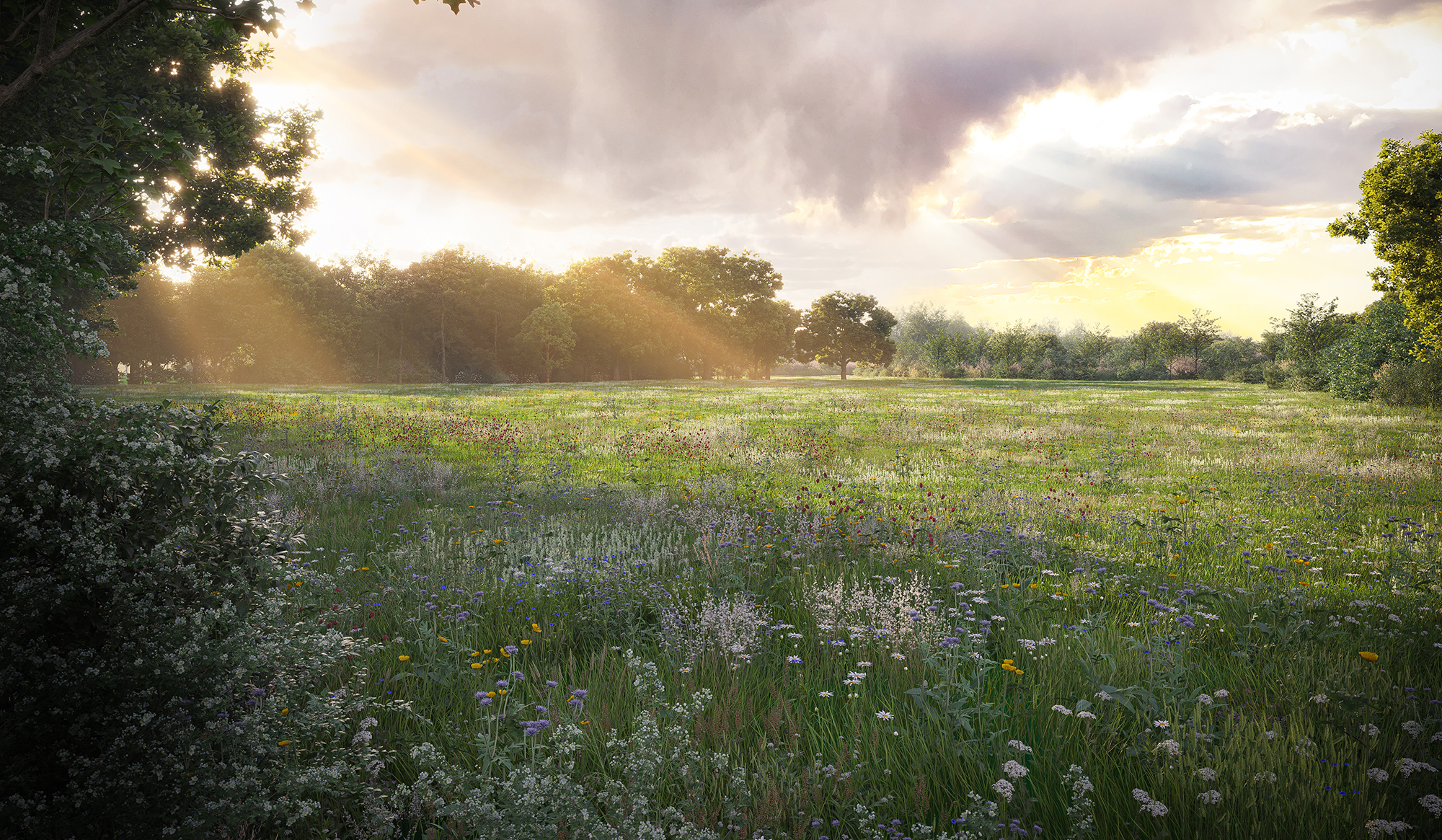BIODIVERSITY NET GAIN
The questions you should ask for long-term security
Secure income streams can be incredibly valuable for landowners. With the Basic Payment Scheme (BPS) being phased out by 2028, Biodiversity Net Gain (BNG) policy offers a fantastic way for landowners or estate managers to secure a reliable source of additional income.
From January, all developers in England must demonstrate a 10% uplift in biodiversity to secure their planning permission – with some local authorities requiring this already.
Developers can deliver BNG by purchasing biodiversity units from habitats created off-site. Landowners can secure a long- term income stream by establishing habitats on their land and creating these biodiversity units.
Landowners partnering with Environment Bank are typically earning between £20,000 - £60,000 annually for at least thirty years. That’s in addition to annual uplifts, windfall revenue share options, and benefits to the landowner resulting from farming infrastructure enhancements and upgrades. The reliable income stream we offer is de-linked from downside market risk, sales complexities, or delays.
Several options for landowners
Broadly, there are three routes for landowners looking to access the BNG income stream:
• Creating habitats and selling units themselves
• Leasing land directly to developers
• Collaborating with a third-party provider specialising in BNG delivery
Whichever route they choose, landowners should be mindful of exposing themselves to risk and creating a stranded asset – not only for themselves, but also for their successors who will inherit the land.
Creating biodiversity units is a complex undertaking requiring industry expertise.

Who is liable for BNG delivery?
You will require a solicitor to ensure the complex legal frameworks are being followed. If you are going it alone, you bear the legal responsibility for BNG delivery for any units you have sold to
a developer. Under these circumstances, the Section 106 agreement you sign to secure a developer’s planning permission will bind you to BNG for thirty years.
If you lease the land directly to the developer, they will bear responsibility – though they may not have the ecological expertise to ensure its delivery is even feasible, despite the land being legally bound to BNG through a s106 agreement or conservation covenant. Some third-party providers, like Environment Bank, will take full legal responsibility for BNG delivery while others will place that responsibility on the landowner.
You will need to familiarise yourself with the Defra metric used to measure biodiversity uplifts. If you are liable for demonstrating biodiversity gains, you’ll need an ecologist to establish the site’s baseline biodiversity and conduct regular monitoring. Habitat management plans should be tailored over time to ensure uplifts align with anticipated gains.
Who brokers the sale of biodiversity units raised from the land?
If you’re managing BNG yourself, you may need to hire a broker to arrange unit sales. You may face competition from other landowners, third-party providers, and local councils delivering BNG. Likewise, you will need to grapple with the highly localised marketplace for BNG – with the value of each unit depending on habitat type, quality, supply, and demand.
Developers purchasing units are unlikely to choose low-integrity options that threaten their planning security. This is why many landowners are choosing to work with experienced third-party providers and skilled ecologists.
If you do it yourself, you keep all the profits from the unit sales. But the cost of creation and management alone – not including monitoring, reporting, legal costs, and sales costs – is considerable, with the government’s BNG Market Analysis Study estimating an average cost per unit of nearly £19,000 (adjusted for inflation to 2023), making the profit margins slim for a landowner going it alone.

How will BNG impact existing income streams?
BNG can be transformative, but landowners should understand how additionality and stacking factor into their BNG solution. BNG habitats must be new and unique – this means that you cannot use existing restorative projects to count towards BNG. Consider how additionality will be tested to ensure that BNG is additional to what would have been carried out anyway.
Each unit sold must correspond to a specific development project’s BNG and a publicly available national biodiversity gain sites register will be used to account for units nationwide, with an associated fee
to register land.
Consider how BNG stacks with other natural capital schemes on the same land such as carbon credits, water management, and renewable energy – and if they can be sold as individual services or as bundle products.
Also consider the tax implications of this additional income stream and its impact on your land use. Will the change of use of the land affect agricultural property relief (APR) on the land for inheritance tax (IHT) purposes? Will there be restrictions on your land use after the BNG delivery period? Environment Bank, for example, establishes agricultural Habitat Banks to so we can endeavour to ensure land use remains primarily agricultural throughout.
Experienced third-party providers can help landowners effectively integrate BNG into their income streams and land uses for the
long term. They also can remove some, or all, of the associated
risks – providing an attractive option for the landowner.
Will third-party providers offer me a share in the profits?
Third-party providers will take full or partial responsibility for BNG delivery in exchange for the profits associated with unit sales. Some providers will share this revenue generated by unit sales with landowners once they have recuperated their initial costs, and this includes Environment Bank.
Considering the myriad costs associated with tackling BNG on your own, using a comprehensive third-party provider could prove the most profitable route overall. With a range of third-party schemes on offer, you must consider the security of their offering to protect your income stream.

Which BNG delivery options guarantee security for my business income?
By leasing land directly to a developer who takes responsibility for BNG, you remove some of the risk. However, there is no guarantee that planning permission will be accepted or if the developer has adequately budgeted for habitat maintenance costs for three decades (including contingency funding).
Some third-party providers will use option agreements that involve waiting for a unit buyer to be found before your payments begin, placing your income security at further risk in the event of no demand. And some may be unable to offer the certainty of future payments.
Look out for providers with reliable funding and a track record for high-quality habitat creation. They will be the best informed to adequately estimate the cost of management and capital works for thirty years.
Some third-party providers, like Environment Bank, already have advanced funding secured for thirty years of capital works, land lease payments, and associated legal and administrative costs – giving landowners the confidence that their income is secure from day one.
Discovering the best solution for your business
The best land agents should remain impartial and work with you to maximise profitability without compromising security. But if they are unable to provide comprehensive answers to these questions, they may not be best placed to help you find the best solution.
If you choose to explore the BNG market yourself, thoroughly evaluate the practical, legal, and financial aspects to safeguard your land from risk. Going it alone can be profitable if you have all the vital frameworks in place.
BNG’s complexity shouldn’t make it inaccessible to landowners. Third-party providers like Environment Bank might be the best solution for you. We take full responsibility for BNG delivery, we have advanced funding already secured for thirty years, and we can adapt a solution to complement your existing business needs.

BNG can be transformative
Environment Bank is partnering with landowners and estate managers to ensure they get the best deal with BNG. We’re building lasting relationships with landowners across England – helping to safeguard their business for years to come.
Rupert and Fiona Arnold, landowners from North Yorkshire creating a 32-hectare Habitat Bank on their farmland, shared their thoughts:
“If you want the long-term certainty of funding, we found this model
to be the best one.”“The capital investment in terms of water supply to the Habitat Bank, hedges, fencing, and planting to restore the land would have cost us thousands to do ourselves, but by working with Environment Bank, we have access to funding, the expertise of the ecologists and a solid plan to manage the process for years to come.”
Environment Bank’s collaborative approach gives landowners long-term peace of mind – providing an opportunity to enhance their landscapes and diversify their income, all while retaining their ownership and connection with the land.

